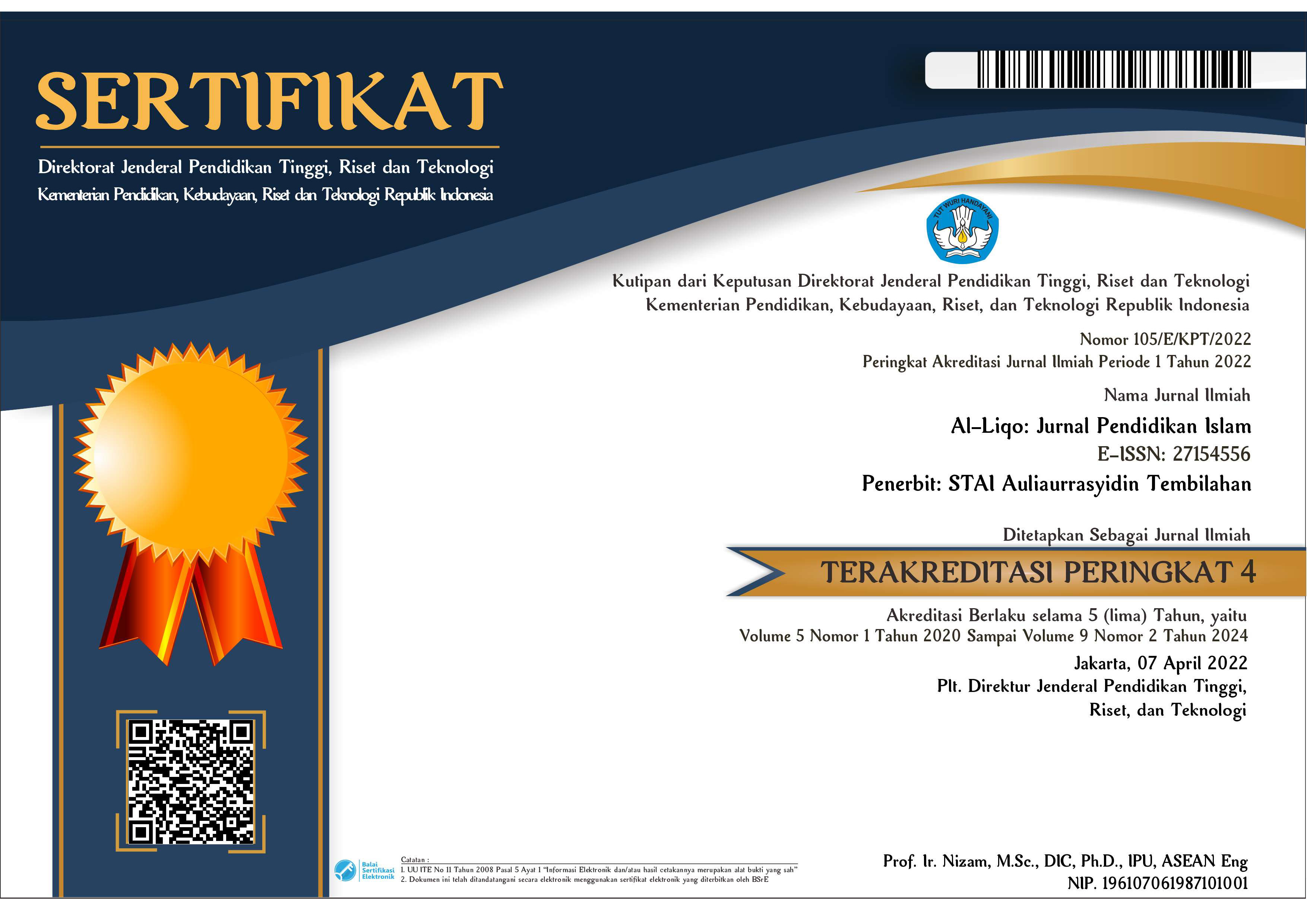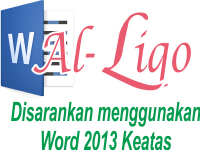Sikap Siswa pada Pembelajaran melalui Teams-Games-Tournament (TGT)
DOI:
https://doi.org/10.46963/alliqo.v7i1.523Keywords:
Attitude, Mathematics, Teams-Games-TournamentAbstract
This study aims to determine student attitudes in learning mathematics using the Teams-Games-Tournaments (TGT) cooperative at SMK Negeri 1 Tembilahan, Riau. Research respondents consisted of 64 students in class X. A total of 32 students were involved in the experimental group and 32 students for the control group. Mathematical attitudes were measured using 19 questions adapted from Arsaythamby and Rosna Awang Hashim (2009), while 20 questions were used to measure student attitudes using TGT adapted from Slavin (1995). The data were collected three times, namely the Initial Test, Post 1 and Post 2 tests which took place five weeks after the Initial Test and Post 1 Test. Data analysis used mixed between-within subjects ANOVA. The results of this study indicate that mathematical attitudes have an important role in increasing mathematical achievement in TGT cooperative learning. The results of the interviews showed the addition of students' interest and motivation in mathematics in TGT cooperative learning. Meanwhile, the results of the observations show that students and teachers are active during the teaching and learning process using TGT. This can be seen from the interactions between students and teachers who work well together.
Downloads
References
Ali, F.A, Seyed, H.S, Manijeh, A & Hassan, A. M (2007). A Coomparison of the Cooperative Learning Model and Tradisional Learning Model on Academic Achievement. Baqiyatallah University of Medical Sciences, Tehran, Iran. Journal of Applied Sciences.
Arsaythamby, V., & Sitie Chairhany (2012). Fostering Students’ Attitudes and Achievement in Probability Using Teams-Games-Tournaments. Paper Conference on Learning, Teaching & Educational Learshinp On 25-28 october 2012 Brussels. Belgium.
Arsaythamby,V.,& Rosna Awang Hashim (2009). International Journal of Management Studies Formerly as Jurnal Analisis Vol 16 No.1, Universiti Utara Malaysia, Kedah
Ben-Ari, M (2001). Theory-guided technology in computer science. Science and Education.
Creswell, J (2009). Research design: Qualitative, quantitative, and mixed methods approaches. Los Angeles, CA: SAGE Publications.
Fraenkel, J.R., &Walen, N.E (1990). How to Design and Evaluate Research in Education. Second Edition, New York: McGraw-Hill Publishing Company.
Keri, W., & Plattsmouth, NE (2010).Communication of Mathematics Within Cooperative Learning Groups. In partial fulfillment of the MAT Degree Department of Mathematics University of Nebraska-Lincoln
Kushman., Hanita., & Raphael (2011). An Experimental Study of the Project CRISS Reading Program on Grade 9 Reading Achievement in Rural High Schools. Final Report Institute of Education Sciences.
Ma, X., &Kishor, N (1997). Assessing the relationship between attidute toward mathematics and achievement in mathematics: A meta-analysis. Journal for Research in Mathematic Education.
Okebukola, P. A (1985). The relative effectiveness of cooperative and competitive interaction techniques in strengthening students’ performance in science classes. Science Education.
Scott, J., & Curtis, N.E (2009). Improving Achievement and Attitude Through Cooperative Learning in Math Class. in partial fulfillment of the MAT Degree Department of Mathematics University of Nebraska-Lincoln.
Slavin, R.E. (1995). Cooperative Learning Theory, Research, and Practice. Second Edition. America: Allyn and Bacon.
Stevens, J. (1996). Applied Multivariate Statistics for the Social Sciences (3 rdedn). Mahwah. NJ: Lawrence Erlbaum.
Steyn, T. &Maree, J. G (2002). A Profile of First-Year Students’ Learning Preferances and Study Orientation in Mathematics, South African Journal of Education.
Supriyoko (2008). Problema Besar Madrasah. Republika (2008)
Tabachnick, B.G., &Fidell, L.S (2007). Using Multivariate Statistics (5 th), Boston: Pearson Education.
Zainudin., & Ibrahim (2009). “Pengaruh Sikap, Minat, Pengajaran Guru dan Rakan Sebaya Terhadap Pencapaian Matematik Pelajar”. Penyelidikan, Fakulti Pendidikan Universiti Malaysia.
Downloads
Published
Issue
Section
License
Authors who publish with this journal agree to the following terms:
1. Copyright on any article is retained by the author(s).
2. The author grants the journal, right of first publication with the work simultaneously licensed under a Creative Commons Attribution shareAlike 4.0 International License that allows others to share the work with an acknowledgment of the work’s authorship and initial publication in this journal.
3. Authors are able to enter into separate, additional contractual arrangements for the non-exclusive distribution of the journal’s published version of the work (e.g., post it to an institutional repository or publish it in a book), with an acknowledgment of its initial publication in this journal.
4. Authors are permitted and encouraged to post their work online (e.g., in institutional repositories or on their website) prior to and during the submission process, as it can lead to productive exchanges, as well as earlier and greater citation of published work.
5. The article and any associated published material is distributed under the Creative Commons Attribution-ShareAlike 4.0 International License







2.png)



